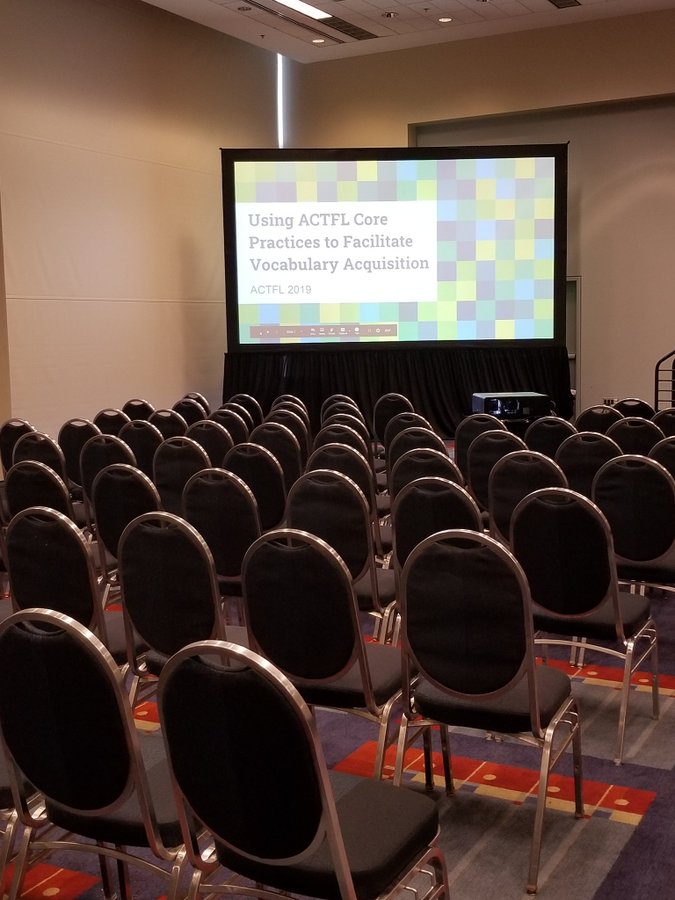
One of the highlights of my time at ACTFL 2019 was a short conversation I had with Sara-Elizabeth Cottrell in the ACTFL Playground Saturday morning. She and her co-presenter, Laura Sexton, had presented a session, PBLL + TCI: Love Connection or Divorce Court that really resonated with me. In this presentation, Sara-Elizabeth had adopted the persona of TCI (Teaching with Comprehensible Input) and Laura had played the role of PBLL (Project-Based Language Learning) in a skit based on a game show. This format created a context for a detailed conversation about the differences between TCI and PBLL. It was the first time I had heard two experts in our field openly discussing the disparities inherent in these methodologies and I couldn’t wait to find out how the characters in their dramatic presentation would resolve their conflict. Of course, by the end of the session PBLL and TCI realized (as Laura and Sara-Elizabeth had years earlier) that the two strategies could be used together to build proficiency.
I was so thrilled to see these two amazing women demonstrate a way to bridge the divide that many have perceived in the world language community. It is an unfortunate reality that the labels we use to describe our teaching methodology can sometimes create a wall between “us” and “them.” In fact, I have witnessed some very difficult conversations between those teachers who identify as “CI,” and those who have chosen the “proficiency-based,” label. However, I couldn’t agree more with Sara-Elizabeth who later tweeted that the dichotomy between being a CI teacher OR a proficiency teacher is “NOT A THING.” It was such a relief to have someone as knowledgeable as Sara-Elizabeth so succinctly summarize my own beliefs. Although I sometimes use the term “proficiency-based” to refer to my own constantly-evolving teaching style, this is not meant to deny the importance of comprehensible input for language acquisition. In fact, I fully agree with Sara-Elizabeth’s explanation (via Twitter) that “proficiency can’t be built without CI and the result of CI is proficiency.”
While most 21st century language teachers understand the role of comprehensible input in building proficiency, there is less agreement on how best to provide this input. Current methodologies differ in both the specific strategies and the types of resources that are suggested. Based on our training, experience and community, many of us have aligned our practice with one of these methodologies and may even identify ourselves as “I am [methodology].” It is so validating to be a part of a specific community and I understand the desire to identify as a member of a specific group. However, I think that doing so sometimes negates the fact that we are more alike than we are different. I love Sara-Elizabeth’s suggestion that we instead describe our practice by saying, “I use [strategies].” In my opinion, doing so encourages us to go beyond the limits of our labels and incorporate strategies based on our knowledge of our students, our unique personalities and experiences, and the requirements of our teaching environments. Furthermore, by letting go of our labels we might facilitate more inclusive conversations with teachers whose language teaching journeys have led them in slightly different directions than our own.
https://pixabay.com/illustrations/discounts-discount-label-promotion-2894129/

